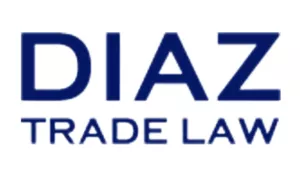On April 24, 2024, President Biden signed into law H.R. 815, an emergency supplemental appropriations bill that included spending for Israel and Ukraine, along with other priorities such as data protection from foreign adversaries.
Within the fentanyl trafficking section, the bill included a provision that doubles the statute of limitations for all sanctions violations from five to 10 years. It also extended the limitation for certain export control violations such as biological weapon proliferation.
Impact
This policy change will change how exporters keep records, maintain compliance programs, and conduct due diligence. It also allows more time for the government to investigate violations.
Government
The Department of Justice and the Department of Treasury's Office of Foreign Assets Control (OFAC) are the primary authorities that will benefit from this policy change. Agency officials and prosecutors will now have twice as much time to investigate and bring charges against exporters.
The majority of federal crimes currently have a five-year statute of limitations. Some serious crimes such as capital murder or treason have no statute of limitations, other serious crimes such as embezzlement from a federal financial institution or racketeering have a 10 year limit.
Congress deliberately extending the limitations period in line with serious federal crimes sends a clear signal that export violations are a priority and considered a serious offense by the U.S. government.
Private Sector Implications
Companies seeking to invest in or acquire another company subject to export control laws and U.S. sanctions will now have to request documentation for 10 years instead of five.
The law will also impact recordkeeping requirements for exporters. OFAC currently requires anyone subject to its regulations to maintain a record of each transaction for the last five years. While H.R. 815 did not change this requirement, it is expected that OFAC will soon amend its regulation to require transaction recordkeeping for 10 years.
Compliance programs will have to be adjusted to account for this change to ensure that proper precautions are taken and internal recordkeeping covers the full 10 years.
It is important to note that the new statute of limitations does not apply retroactively. Meaning, if five years has already passed on a potential violation, the new law will not extend the time. However, if five years has not yet passed for a violation, the 10-year term will now apply.
More information on export control laws:
- The Importance of Regular Export Compliance Training for your Business
- Building a Strong Export Compliance Plan
- Bloomberg Law: Building & Maintaining an Effective Export Compliance Plan
- Introduction to Export Controls
The content of this article is intended to provide a general guide to the subject matter. Specialist advice should be sought about your specific circumstances.


